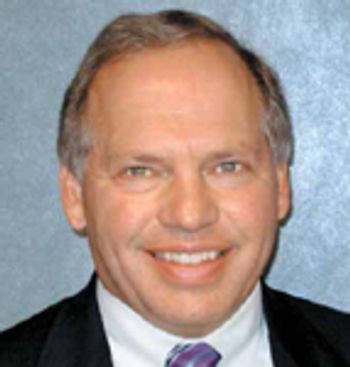
Pharma is forging more partnerships with technology companies to extend patent life.

Third regulatory delay highlights difficulty of developing weight loss products.

HRT franchise grows despite lawsuits, new safety fears.

There are good reasons why we shouldn't permit lifestyle drugs on the market. But as a society, we've already shown that those reasons don't mean much to us.

Critics asked for a reevaluation of new drugs a year after launch. FDA's plan to issue report cards on new drugs responds to that demand-but not completely.

For several decades, conventional wisdom in the pharmaceutical industry has held that a large sales force is the key to commercial success. However, in recent years, a number of warning signs have emerged about the effectiveness and long-term viability of this expensive asset. While few are saying it publicly, a number of pharma executives are now exploring the possibility that it could be only a matter of time before the industry's dependence on personal selling comes to an end.

Partnerships with US drug firms haven't always worked out the way Japanese companies would have liked.

Companies like Amgen, J&J launch DTC efforts to raise awareness of biologics.

Merck ends controversial lobbying campaign for HPV vaccine, but was it the right move?


First-ever Advance Market Commitment offers guaranteed price for vaccines in poor countries.

CSL Biotherapies hires branding agency to prepare for possible product launch later this year.

Companies put new emphasis on marketing to managed care.

FDA drug safety proposals don't represent major overhaul.

Drug giant cuts jobs, vows to speed up drug development.

Otsuka forms new strategic unit that will focus on development, commercialization.

PEE readership survey

PEE readership survey v. 2

Myth vs. Reality: The American healthcare system needs a makeover. That requires policies based on accurate information about how our country’s system compares to others’. To start, we must separate fact from fiction.

PEE Readership Survey 2007

A new bill says HHS has to negotiate Medicare drug prices with pharma companies. It won't work-but that's not the biggest thing wrong with it.

Drug giant's new style features brains over brawn.

Physicians still slow to restrict prescribing data from sales reps as New Hampshire case goes to trial.

Unbranded campaign with American Heart Association kicks off with much fanfare.

PEE Reader Survey Jan 2007

FTC is looking to ban reverse-payment settlements and pharma must tread with caution.

Experts offer strategies for blocking repeal of non-interference bill.

Kindler's Strategic Direction Is Neither, Say Cranky Analysts

Consumers still aren't happy, but industry calls FDA's addition to PDUFA 'an important new step.'